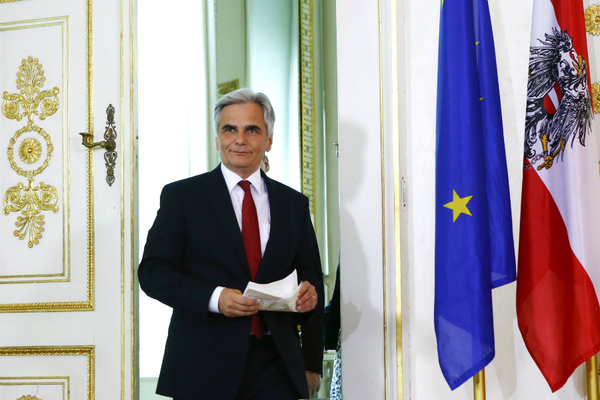VIENNA; AND MADRID — When Austrian Chancellor Werner Faymann stepped down this week, it was not only one of the biggest symbols yet of a Europe-wide erosion of confidence in mainstream politics.
His resignation also points to the particular failure of Europe’s center-left, which has struggled to navigate an era of economic insecurity, record migration, and terrorism threats.
Mr. Faymann was forced to step down as leader of the Austrian Social Democratic Party after being thrashed by the far-right in the first round of presidential elections last month.
Like much of northern Europe, far-right populists in Austria have attracted the blue-collar vote as they’ve paired a leftist economic platform with a right-wing rejection of migration. And in southern Europe, socialists have been tested by upstart leftist parties who say the old left has become indistinguishable from the center right. Nowhere is that clearer than in Spain, which is bracing for new elections in June after inconclusive polls in December.
Social democracy has been a driving force of European politics and identity since the end of World War II. But political loyalties have changed with restructured economies, and the left has been forced to shift right amid financial crisis. Many fear that the weakening of the center left is a boon for fringe parties. It also shifts the continent further to the right overall.
“All over Europe and everywhere, there’s a crisis of social democracy because neoliberalism politics have triumphed,” says Jaime Ferri Durà, head of the political science department at Complutense University in Madrid.
By: Sara Miller Llana and Catarina Fernandes Martins





